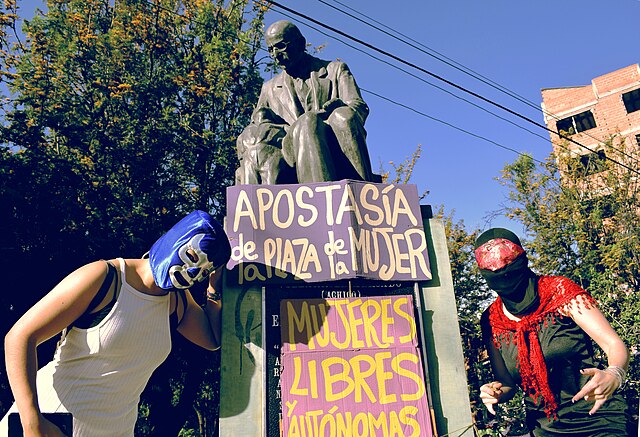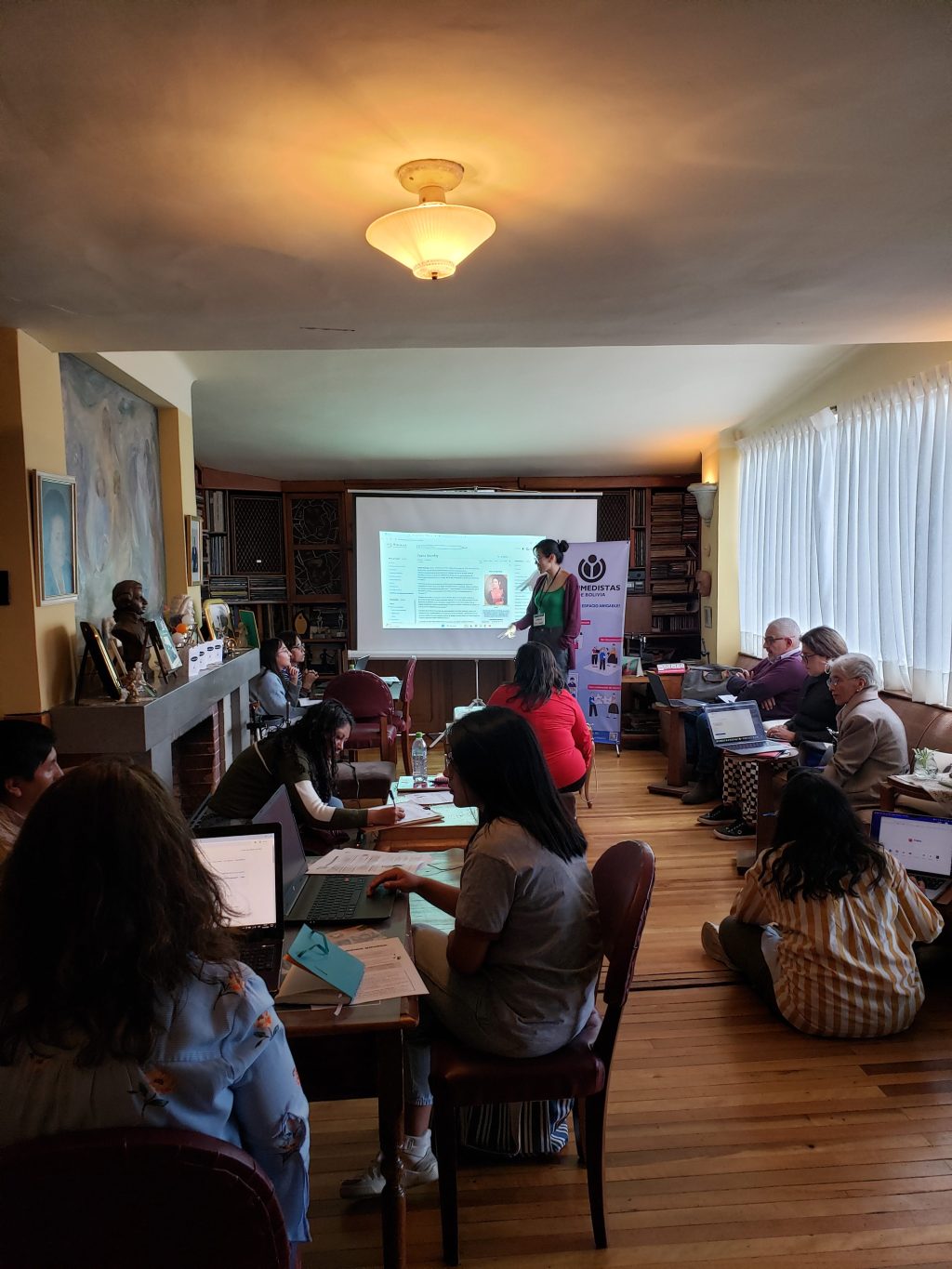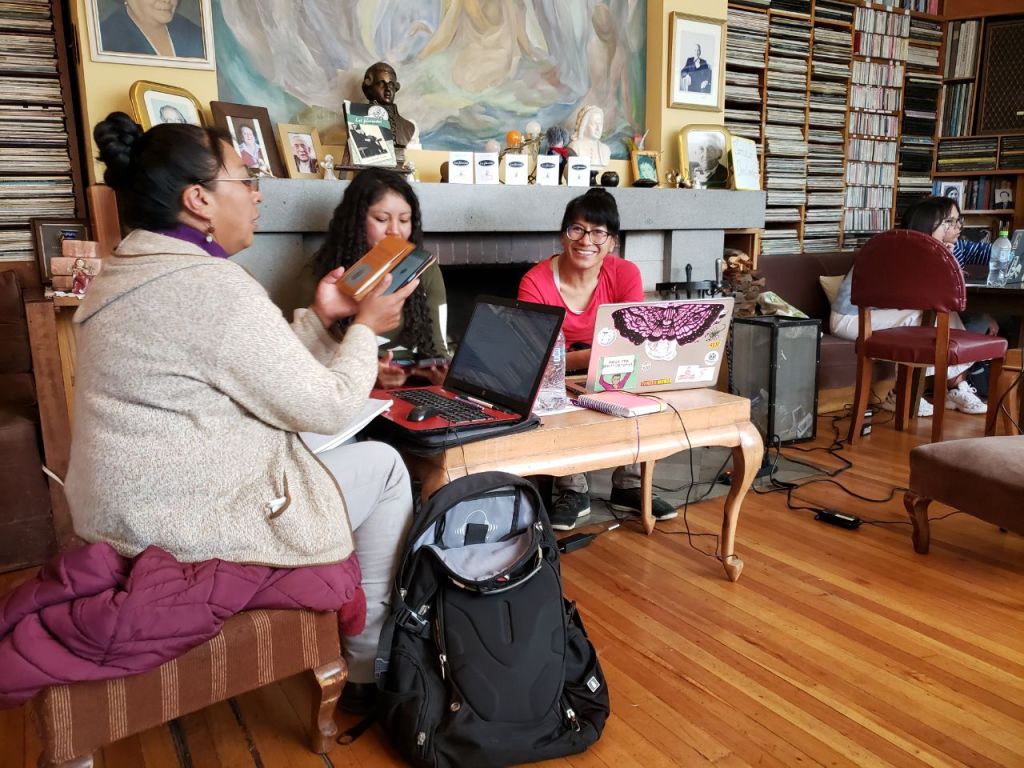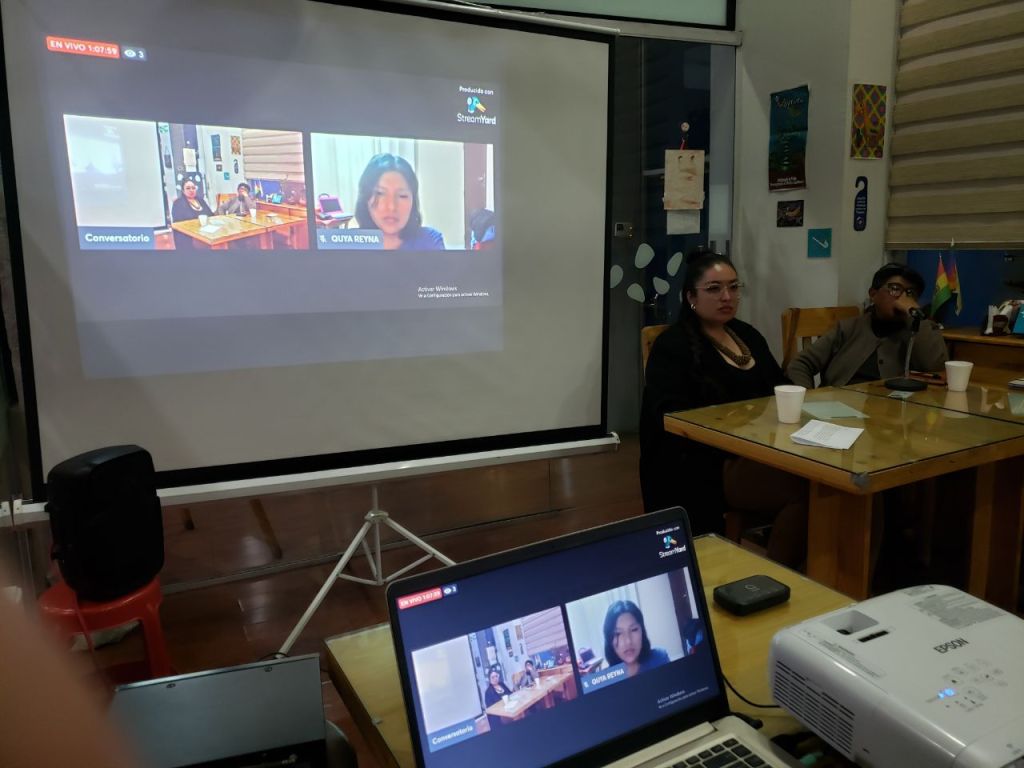
From Bolivia, we joined the regional campaign “Alto! Mujeres haciendo historia” (Stop! Women making history) through two activities with the main objective to encourage more women to get involved in the edition of articles and to get to know the wiki world. This objective, which may seem very simple, responds to the reality of the country in which the digital street replicates daily offline violence and complicates the participation of women in spaces for free knowledge.
As part of the global initiative, several chapters from the south promoted this campaign. The call resulted in the registration of 400 people who were part of an editing marathon and in this way we had a large number of photographic records in Wikimedia Commons. These actions are part of a constant effort to reduce the gender gap in Wikimedia projects. Precisely the cover of this article is the photographic record of the reclaiming of a public space during the 8M marches in Bolivia. This photograph won an award in the contest “Arden las calles” , Wikimedia Mexico held last November.
The digital street
Until a few years ago the marches for 8M gathered about a hundred women. That has changed. Women’s conditions in the face of digital harassment have also changed; however, the digital street is still a space in which daily gender-based violence is reproduced and sometimes amplified.
The poor quality of internet services is one of the various characteristics of the digital street. Another characteristic is the notorious lack of regulations to protect the integrity of people in these spaces. Due to their importance, some of these topics have been addressed in the Leamos Wikipedia (Reading Wikipedia in the Classroom) sessions in municipal environments where it has been identified that it is important to support surfing the Internet by understanding notions of safety and self-care.
There are valuable initiatives of institutions in the country that, from the most basic principles, are expanding their work towards the care of identity and digital security. In this sense, since last year we have been strengthening an alliance with Internet.org that works on these issues in already consolidated areas.
What did we do from Bolivia?

In 2024 we consolidated five years as a user group recognized by AFFCOM, 2 years of work through an annual grant, and more than ten years of volunteer work. Building on our previous learning, this year we joined the regional campaign with two activities: an editing workshop and a discussion with renowned local figures in literature. The focus was on exploring the concepts of the female gaze and the male gaze.
We held an editing workshop at the Flavio Machicado Viscarra Foundation. In this event we made a brief explanation with general information about Wikipedia in Spanish and we shared a guide with the first steps on how to edit; finally we put hands on the deck and improved and started articles about relevant Bolivian women in the history of the country.
As a result of this event, we now have articles on laws such as the Integral Law to guarantee women a life free of violence and Bolivian women such as Barbarella and Wara Vargas. On the other hand, we consider that this type of event consolidates the alliance we have with spaces such as the one that hosts the Flaviadas.
It also made it possible for people with different interests to connect and to prioritize the participation of women of different ages. We were even joined by the journalist Lupe Cajías, who collaborated in the edition of an article.

Conversation on the Bolivian women’s perspective in literature
We also held a discussion on the representation of women in literature. We invited curator Tatiana Suarez, writer Vicky Ayllón from La Paz and writer Quya Reyna from El Alto. Emphasis is placed on the place from which these women construct their gaze.
In this space we shared some analyses that we consider pertinent to share:
How knowledge is constructed matters. Tatiana Suarez invited us to work from the contrast of sources and complementing perspectives. She suggested avoiding androcentric gender bias and female gaze. In this way she shared five suggestions for reconstructing the memory of women.

Virginia Ayllón gave a strong argument about women co-opted by the system, now we are talking about the super woman. And she triggered the conversation with the question: “if language is patriarchal, how do we use it to write about ourselves”. She also pointed out the need to recover our genealogies and recognize the voice of our grandmothers.
Quya Reyna worked on language from otherness for the reconstruction of the historical figure of Aymara women. In this way, she pointed out that the political representation of women is developed as a figure of accompaniment next to a man. That is to say that women are understood as cultural subjects before political subjects, the merit is always the link with a man or a characteristic of clothing and culture.
Naturally the conversation turned to the use of Artificial Intelligence and from the team we gave a brief introduction to how the topic is approached from the movement. This is summarized in what Coordinator Olga Paredes said: “for the movement, knowledge is human”.
Finally, we closed the team’s activities with a dialogue with domestic workers to establish a way of working for a face-to-face session with topics of interest that were identified.

Can you help us translate this article?
In order for this article to reach as many people as possible we would like your help. Can you translate this article to get the message out?
Start translation